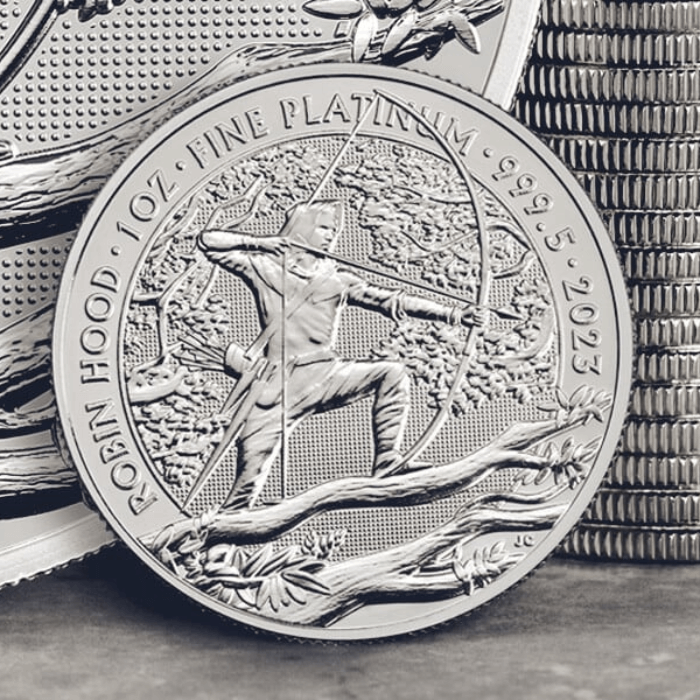
As the end of the tax year approaches, United Kingdom investors are urged to assess their financial portfolios and make strategic decisions to optimise their tax positions. Here are three crucial considerations that should be on every investor’s radar:
1) Capital Gains Tax (CGT) Threshold Reduction to £3,000
From 6 April 2024, the Capital Gains tax-free allowance in the UK will be reduced to just £3,000, down from £12,300 in 2022/23. This means individual investors will likely have to pay CGT if the total value of gains made in the tax year exceeds £3,000 – potentially meaning thousands more investors will be subject to CGT for the first time.
In light of the reduced CGT threshold, investors may find value in exploring Capital Gains Tax exempt bullion coins, such as Britannia and The Sovereign. These coins, classified as legal tender in the UK, are exempt from CGT, providing a strategic avenue for investors to preserve gains without incurring additional tax liabilities. Allocating a portion of an investment portfolio to these coins could prove advantageous, allowing investors to diversify their holdings whilst enjoying the tax benefits associated with investing in bullion coins.
In addition to CGT-exempt assets like coins, some investors seek to reduce their exposure to CGT via Individual Savings Accounts (ISAs) and making pension contributions.
2) Abolition of the Pensions Lifetime Allowance (LTA)
From 6 April 2024, the Lifetime Allowance (LTA) that limits how much money you can save into your pension without paying extra tax will be abolished. The current limit is set at £1,073,100, but the abolition of the cap essentially removes the disincentive to build a more sizeable pension pot that can be enjoyed later in life or help pay for the costs of care.
With life expectancies increasing, and the difficulty in predicting the ways in which your lifestyle might change post-retirement, building a resilient and sufficient pension is arguably more important than ever.
Adding gold to a pension portfolio can enhance diversification, reduce overall risk and provide a store of value. Gold has long been considered a safe-haven asset and a hedge against inflation. Gold-backed pension investments, such as gold exchange-traded commodities (ETCs) or allocated physical gold, offer a tangible asset within the pension structure, potentially contributing to long-term financial stability.
The Royal Mint offers both options. The Royal Mint’s Responsibly Sourced Physical Gold ETC can be accessed via the London Stock Exchange under the ticker RMAU (or RMAP for Pounds Sterling), whilst those looking to add individually allocated physical gold bars to their Self-Invested Personal Pension (SIPP) or Small Self-Administered Scheme (SSAS) can get in touch with our Gold for Pensions team.
3) Maximising the Tax-Free ISA Allowance
ISAs are a popular choice for individual investors who want to be able to access their funds before retirement. ISAs benefit from income tax relief and can grow free from CGT.
As it stands, individuals can save or invest a maximum of £20,000 in ISAs in any given tax year. Whilst cash ISAs which pay interest still dominate the market, stocks and shares ISAs are becoming more prominent. These allow you to invest, rather than just save, any funds in a tax-efficient way.
Beyond simply buying conventional company shares with a stocks and shares ISA, investors should also consider the role of gold in diversifying their ISA portfolio. Gold has historically demonstrated a negative correlation with traditional assets like stocks and bonds, making it an effective diversification tool.
By incorporating gold, investors can mitigate risk and enhance the resilience of their portfolios during times of market volatility. Investing in gold-backed ETCs like The Royal Mint’s Responsibly Sourced Physical Gold ETC via a stocks and shares ISA can provide tax-efficient exposure to the precious metal and contribute to a well-balanced investment strategy.
In Summary
As the tax year concludes, UK investors may wish to not only stay informed about changes in tax regulations but also strategically position their portfolios to optimise returns and mitigate risks. Exploring CGT-exempt coins, incorporating gold into pension portfolios, and diversifying with gold in a tax-efficient ISA are strategic moves that may align with the current financial landscape. Consulting with a financial advisor can provide tailored guidance to help investors navigate these opportunities effectively.
For more information on these changes please visit:
- https://www.gov.uk/government/collections/capital-gains-tax-detailed-information
- https://www.gov.uk/government/publications/abolition-of-the-lifetime-allowance-from-6-april-2024/abolition-of-the-lifetime-allowance-lta
- https://www.gov.uk/individual-savings-accounts
Notes
The contents of this article are accurate at the time of publishing, are for general information purposes only, and do not constitute investment, legal, tax, or any other advice. Before making any investment or financial decision, you may wish to seek advice from your financial, legal, tax and/or accounting advisers.









